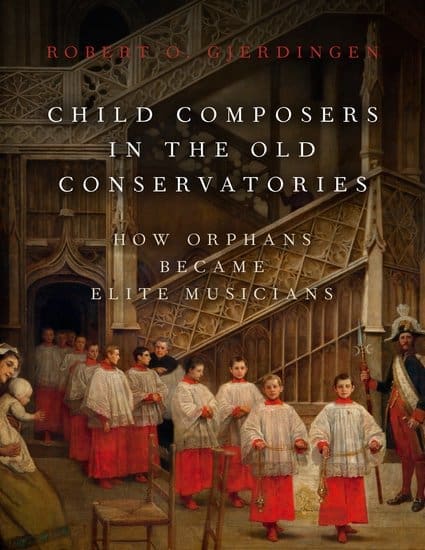Looking for a book the start the new year?
Look no further. Read Child Composers in Old Conservatories by Robert Gjerdingen.
The tl;dr summary:
- Classical composers were able to write the intricate music at the speed they did because they were not trained the same way musicians are in modern universities.
- Rather than teaching them theories about music, the conservatory system taught them to spot and elaborate hundreds of basic harmonic and contrapuntal patterns from single melodies or bass lines.
- As composers became fluent in reproducing these patterns, they gained complete contrapuntal mastery.
This book rocked my world.
I feel safe in calling it not only my “Book of the Year,” but my “Book of the Decade.”
This is the book I wish I had when I was 15, just starting out as a composer, and it was just as meaningful to me as a professional composer with a PhD.
Why? Because it lines up with how teenage Joseph understood music — and how I think most people hear music — as a bunch of ear worms.
I want to find songs I love. I want to play those songs on repeat. I want to sing them constantly to myself. I want to be a collector of “favorite moments” in songs, the ones you rewind and playback over and over.
In other words, I am smitten with music. I want to know all the intimate details of the music I love, just like a lover seek to know everything about their beloved.
I suspect that most people who truly love music feel the same way — and that’s the genius of the pattern-based approach to learning harmony and counterpoint:
Rather than using this infatuation merely as motivation for students to learn music, it is the very mechanism by which it teaches music. The pattern-based approach makes your love of music thorough, disciplined, and intimate.
Now, I had learned most of these things by the time Child Composers came out (especially from Gjerdingen's previous book, Music in the Galant Style), but Child Composers put all of the details I had learned into context and added mountains of new, fascinating insights.
Remember when the extended editions of the Lord of the Rings films came out and people went nuts over them? That's how I feel about this book. It's gold upon gold.
So if you are a composer whose music relies on harmony and counterpoint, read this book. You’ll love it.
If you’re a performer who wants to demystify what composers do, read this book. It will show you.
Even if you’re just a music lover who wants to understand how classical composers got their skills, this is the book for you. Gjerdingen supplements the book with comprehensive YouTube examples, so not reading music needn’t hold you back.
Furthermore (and I say this from my decade-plus work as an editor), Gjerdingen is an exceptional writer. His prose is charming, fluid, and easy to read. If you enjoy reading authors like David McCullough or Malcolm Gladwell, you’ll feel right at home with Gjerdingen.
I could go on and on about this book.
In the next round of the Wizarding School for Composers, I’ll be incorporating its ideas thoroughly into the curriculum.
But in the mean time, if you get the book, let me know what you think!

Don’t Miss Next Week’s Post
Sign up to stay in the loop about my music—and ideas for your own composing!

